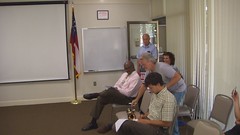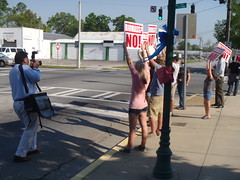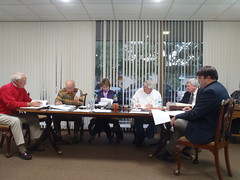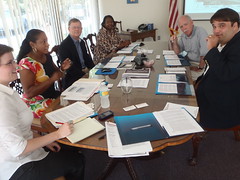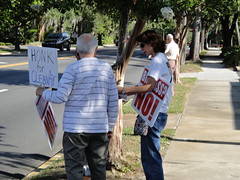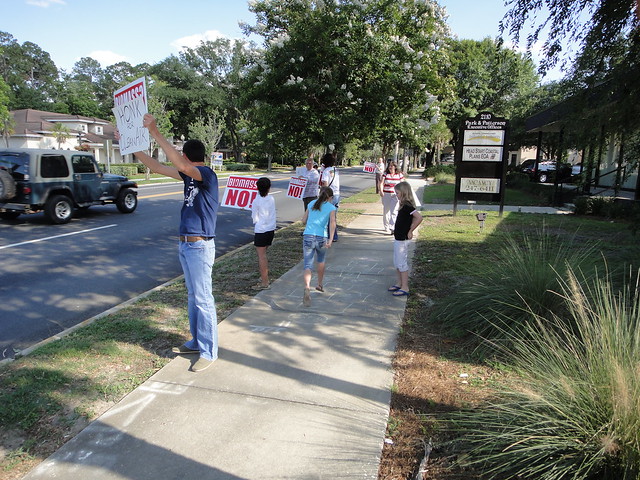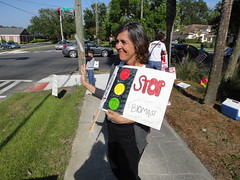 Karen Noll asked the VLCIA board to put a no-biomass clause
in any purchase agreement regarding the proposed biomass site.
Karen Noll asked the VLCIA board to put a no-biomass clause
in any purchase agreement regarding the proposed biomass site.
She began with these words:
I’m Karen Noll. I hope some of you already have seen my writing and have read my letters to you in the past. I’m obviously here on one issue. I hope that in the future I can be talking to you about other issues. But right now I’m talking to you about biomass. And we celebrated that it was dead and it was gone and now it’s not. Because we really don’t know … what the plan is.By “we” I’m guessing she meant WACE. Some of us who are not members of WACE warned that it ain’t over until it’s over, and it only took a week to discover that VLCIA already knew Sterling Planet wanted to buy the proposed biomass site.
Karen Noll made a pitch based partly on saving taxpayer money. In addressing health concerns, she handed the board a letter from local doctor Craig Bishop. She handed the board a petition with “at least 700 signatures” and she said for each signature there was probably at least one more that didn’t sign. Some of what she said appeared to be drawn from a letter that is appended in this post after the video.
Here’s Part 1 of 2: Continue reading

